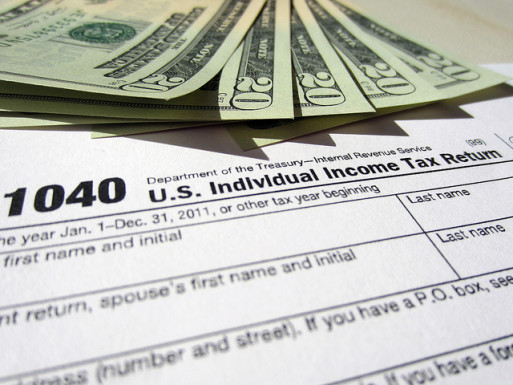
Credit: Flickr.com
Our Tip of the Week: When a loved one dies, the last thing on your mind is taxes. However, the IRS requires a final accounting of inheritances, deductions and income in the event of someone’s death. Having this paperwork prepared ahead of time can ease the process for your loved ones and save them from a messy audit. Your beneficiary or survivors are responsible for filing your taxes in the event of your death, so discuss this process with them when you write your will.

Make the process of doing your final tax return easier by being prepared
(Credit: xinyagaiye.com)
How-to Suggestion: First, make sure that your beneficiary or survivors have access to the information needed to file your final tax return. On a secure flash drive or in a locked filing cabinet, include all of the pertinent information you would need to file your own taxes, including names of the companies you work for, retirement accounts, investment accounts and tax-deductible receipts. In your will, explain where your survivors can find this information, or provide them with your accountant’s contact information. The IRS will either tax your final income as usual, or it will tax the beneficiary’s return if the beneficiary receives money in the form of inheritance. The final return should be filed in the same way as a normal tax return, with the word “deceased” written after the taxpayer’s name. To find out how to file a final tax return, contact your accountant or read detailed instructions here.

 Our Weekly Tip: Filing a Final Tax Return After a Loved One’s Death
Our Weekly Tip: Filing a Final Tax Return After a Loved One’s Death


 “Help Me, Helen”
“Help Me, Helen”
 Recovering Cremation Remains After the Los Angeles Fires
Recovering Cremation Remains After the Los Angeles Fires
 “As Tears Go By” by Marianne Faithfull
“As Tears Go By” by Marianne Faithfull














